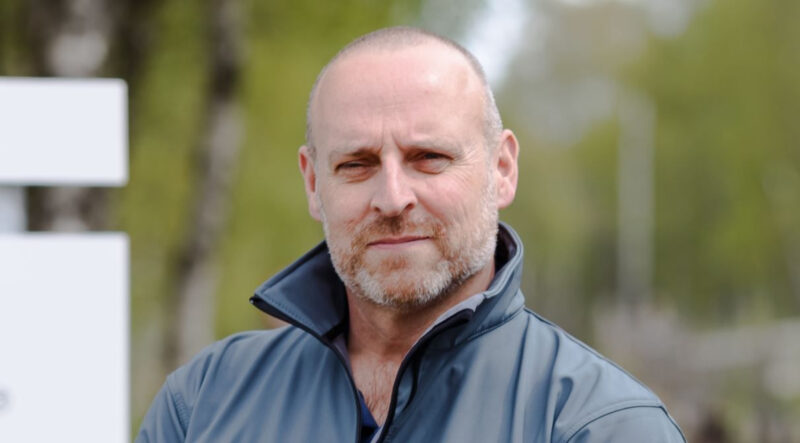“Can’t do” approach plagues aquaculture sector in Canada
Canadian Aquaculture Industry Alliance calls for a shakeup at the Department of Fisheries and Oceans (DFO) to address the perceived conflict of interest at the agency
By Fabian Dawson
SeaWestNews
The discussion around aquaculture, especially salmon farming in British Columbia, is dominated by a “can’t do” approach that undermines Canada’s objective to be a global leader of the Blue Revolution.
Powered by ‘loud voices with unreasonable expectations’, anti-salmon farming activists have also brainwashed their followers, including several MPs, to cast aspersions over a wealth of scientific data that shows farming salmon in BC has minimal impacts on wild stocks.
These activists and their supporters who champion the ‘no activity, no risk’ mantra, stand in the way of Indigenous reconciliation, economic opportunities, stronger food security and supporting a flourishing blue economy, said the Canadian Aquaculture Industry Alliance (CAIA).
In its submission to a parliamentary committee looking into how the Department of Fisheries and Oceans (DFO) conducts and uses its research, CAIA said public trust in Canada’s agri-food system and federal regulators is of paramount importance to a sustainable future for seafood production.
The Alliance said : “Governments must focus on tangible, incremental improvements to existing processes, and resist the temptation to whole scale change promoted by extreme voices in debates. Ministers of the Crown and Members of Parliament have a tremendous responsibility in upholding science and scientific processes as these have been developed over decades.
“Improvements are always possible and desirable. Trust in science and the regulator is undermined when Ministers of the Crown and MPs broadly condemn and criticize government science evaluation processes, often in response to extreme activist voices, without proposing reasonable and specific ideas for improvement.”
CAIA said casting aspersions on the integrity of DFO’s scientists and Canadian Science Advisory Secretariat (CSAS) process risks eroding trust in the nation’s agri-food system.
“If we, as Canadians, are to be confident in the services and protection that these programs provide, we must also believe in the science advice that underpins aquaculture regulations and the processes that provide that advice. The DFO Minister must support and defend DFO scientists and the science process. If the Minister has concerns, he or she should propose and make specific improvements to the process,” said CAIA.
Farm-raised seafood is currently among the fastest growing and most important food sectors in the world, accounting for over fifty percent of the world’s total seafood production. Canadian seafood farmers generate over $5 billion in economic activity, $2 billion in GDP, and more than 20,000 fulltime jobs for Canadians in primarily rural, coastal and Indigenous communities in ten provinces and one territory.
Timothy Kennedy, President & CEO of CAIA said thousands of jobs across Canada in the seafood sector are dependent on sound science and even more so, sound and reasonable interpretations of risk.
Kennedy pointed to the 2020 Ministerial decision to close salmon farms in BC’s Discovery Islands as “a stark example of how damaging it is when Ministerial decisions fail to reflect sound scientific advice.”
In April 2022, the federal court overturned the December 2020 decision by the Minister, finding that due process had not been followed by the Minister, including failure to consider science advice provided to the Minister.
“Tragically, in the interim between the Minister’s decision and the federal court decision, millions of healthy fish had to be culled and hundreds of people lost their jobs.”
In a rare public defence, nine renowned scientists who were targeted by the activists, have also cautioned the Federal government that it should make decisions on the future of aquaculture in BC, based on the best available science.
They are urging the public and politicians not to believe the claims against salmon farmers being made by activists, saying their widely propagated assertions are not backed by science.
As part of its submission, CAIA is also calling for an end to the “mixed mandate” at DFO between science/regulation and promotion of the aquaculture sector.
For aquaculture, DFO should focus on science and regulation, while promotional and sector development responsibilities should move to Agriculture and Agri-Food Canada (AAFC).
“A shake-up and change in the federal management of the sector should address the perceived conflict of interest at DFO and help strengthen the regulator’s reputation,’ said Ian Roberts, the new chair of the CAIA Board of Directors.
“Our sector also needs to continue to do our part securing public trust and political support. We need to effectively communicate how we raise seafood, and how our sector has evolved over time and is committed to constant improvement,” said Roberts who is the Director of Communications (Scotland, Ireland, Canada).
He succeeds Jennifer Woodland of Nuu-chah-nulth Seafood Limited Partnership who stepped down after almost three years and now serves as Past Chair.
Four new CAIA Board members were also elected:
· Larry Johnson, Nuu-chah-nulth Seafood Limited Partnership (BC)
· Cyrus Singh, k’awat’si Development Corporation (BC)
· Jeff MacPherson, Atlantic Aqua Farms Ltd. (PEI)
· Jennifer Wiper, Aquaculture Association of Canada (NB)
(Image courtesy of Mowi shows Ian Roberts, the new chair of the CAIA Board of Directors.)

